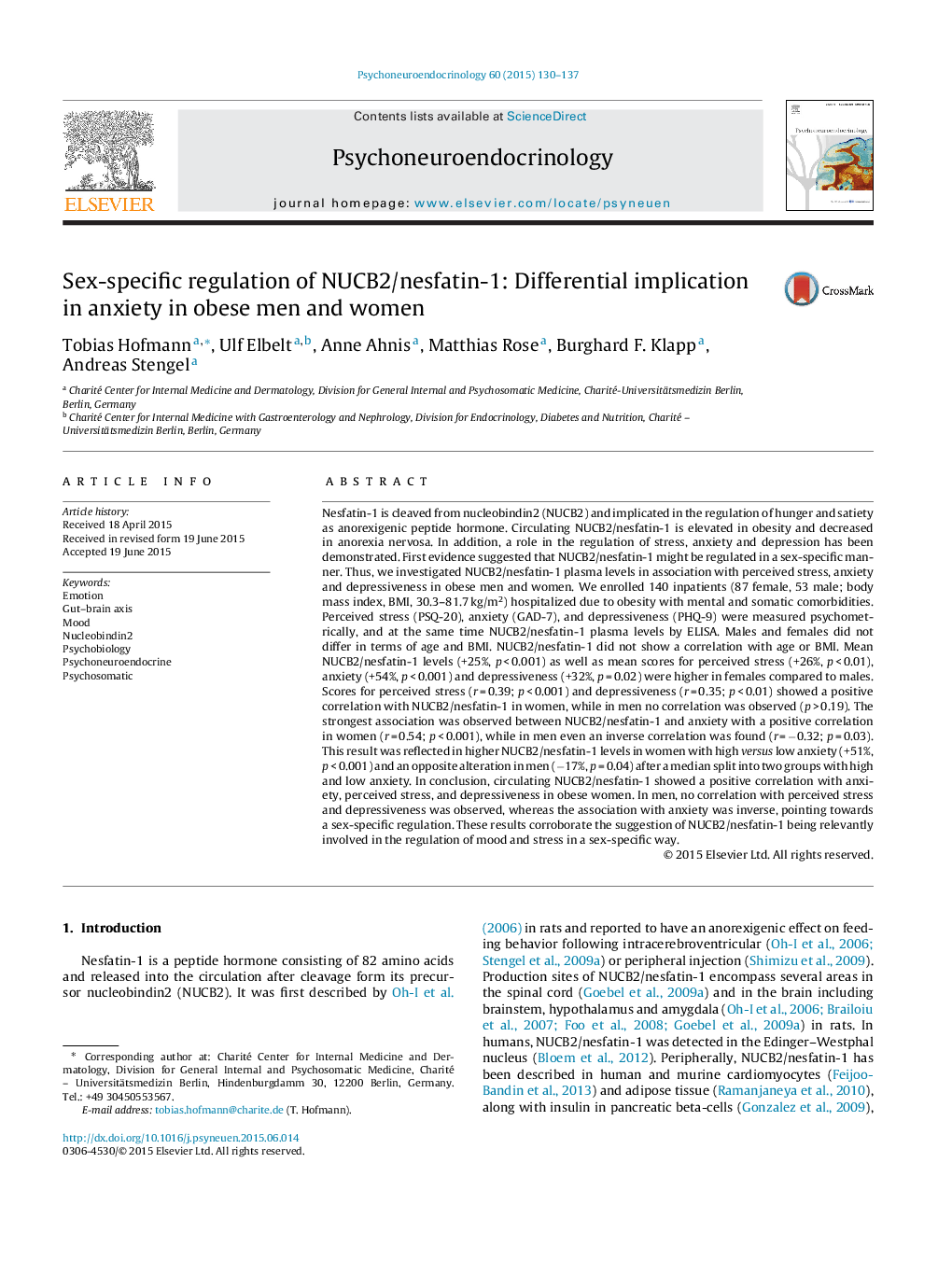| Article ID | Journal | Published Year | Pages | File Type |
|---|---|---|---|---|
| 6818717 | Psychoneuroendocrinology | 2015 | 8 Pages |
Abstract
Nesfatin-1 is cleaved from nucleobindin2 (NUCB2) and implicated in the regulation of hunger and satiety as anorexigenic peptide hormone. Circulating NUCB2/nesfatin-1 is elevated in obesity and decreased in anorexia nervosa. In addition, a role in the regulation of stress, anxiety and depression has been demonstrated. First evidence suggested that NUCB2/nesfatin-1 might be regulated in a sex-specific manner. Thus, we investigated NUCB2/nesfatin-1 plasma levels in association with perceived stress, anxiety and depressiveness in obese men and women. We enrolled 140 inpatients (87 female, 53 male; body mass index, BMI, 30.3-81.7 kg/m2) hospitalized due to obesity with mental and somatic comorbidities. Perceived stress (PSQ-20), anxiety (GAD-7), and depressiveness (PHQ-9) were measured psychometrically, and at the same time NUCB2/nesfatin-1 plasma levels by ELISA. Males and females did not differ in terms of age and BMI. NUCB2/nesfatin-1 did not show a correlation with age or BMI. Mean NUCB2/nesfatin-1 levels (+25%, p < 0.001) as well as mean scores for perceived stress (+26%, p < 0.01), anxiety (+54%, p < 0.001) and depressiveness (+32%, p = 0.02) were higher in females compared to males. Scores for perceived stress (r = 0.39; p < 0.001) and depressiveness (r = 0.35; p < 0.01) showed a positive correlation with NUCB2/nesfatin-1 in women, while in men no correlation was observed (p > 0.19). The strongest association was observed between NUCB2/nesfatin-1 and anxiety with a positive correlation in women (r = 0.54; p < 0.001), while in men even an inverse correlation was found (r = â0.32; p = 0.03). This result was reflected in higher NUCB2/nesfatin-1 levels in women with high versus low anxiety (+51%, p < 0.001) and an opposite alteration in men (â17%, p = 0.04) after a median split into two groups with high and low anxiety. In conclusion, circulating NUCB2/nesfatin-1 showed a positive correlation with anxiety, perceived stress, and depressiveness in obese women. In men, no correlation with perceived stress and depressiveness was observed, whereas the association with anxiety was inverse, pointing towards a sex-specific regulation. These results corroborate the suggestion of NUCB2/nesfatin-1 being relevantly involved in the regulation of mood and stress in a sex-specific way.
Related Topics
Life Sciences
Biochemistry, Genetics and Molecular Biology
Endocrinology
Authors
Tobias Hofmann, Ulf Elbelt, Anne Ahnis, Matthias Rose, Burghard F. Klapp, Andreas Stengel,
